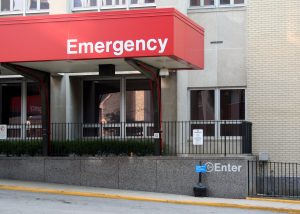 National Health Care Decisions Day (NHDD) has become a week-long event held from April 16 through 22. The purpose of this event is to encourage adults across the U.S. to learn more about planning for their future healthcare needs, including drawing up advanced directives. Without knowledge regarding advanced directives, elderly individuals and their families can find themselves in difficult positions. Loved ones may not have the power to make necessary medical and financial decisions or may not know what their elderly family member would want. Without considering future situations and taking the legal steps to solidify what individuals want for their future care right now, it may end up being too late.
National Health Care Decisions Day (NHDD) has become a week-long event held from April 16 through 22. The purpose of this event is to encourage adults across the U.S. to learn more about planning for their future healthcare needs, including drawing up advanced directives. Without knowledge regarding advanced directives, elderly individuals and their families can find themselves in difficult positions. Loved ones may not have the power to make necessary medical and financial decisions or may not know what their elderly family member would want. Without considering future situations and taking the legal steps to solidify what individuals want for their future care right now, it may end up being too late.
NHDD is More Than Information
NHDD is more than an informative week, which could fall short of being actually helpful for most individuals. Between April 16 and 22, both public and private health care providers across 50 states will offer free and simple-to-use tools for individuals and their families to learn about and create advanced directives. The information and tools also facilitate discussions amongst family members about what they want or need if they were to become physically or mentally incapacitated. Organizations like AARP, the American Bar Association, Livestrong, Supportive Care Coalition, and the Human Rights Campaign participate.
Individuals can also work with an experienced elder law attorney to plan for the future. A lawyer can help individuals choose an appropriate agent, make living wills or power of attorneys, and draft their wills.
Have You Planned for the Future?
Advanced directives are various types of legal documents that give directions or transfer decision making power to others when an individual is unable to make decisions and care for themselves. The most common types of advanced directives are a living will and power of attorney.
A living will is a written document, signed by the individual, and signed by witnesses, that give instructions to physicians to stop or not provide medical interventions when the individual has a terminal condition. The terminal condition can be an illness that progressed passed current treatments available or from injuries suffered in an accident. Only an attending physician has the right to determine that a patient is terminal and interpret that patient’s living will. Family members do not get to make these decisions. Since a physician may misinterpret what a patient wants, it is crucial that an individual work with an experienced attorney when drafting a living will to make it clear and exact.
A power of attorney for health care is also a written document, signed by the individual, and witnessed. However, instead of providing physicians’ instructions, a power of attorney transfers the patient’s right to make his or her own medical decisions to another person, the agent, when the patient is permanently or temporarily unable to make these decisions themselves. Because the patient’s agent will have considerable power, patients must be careful who they choose as their agent and ensure that they have discussed their values and what they want in the future.
Brod Law Firm Can Help After an Accident Occurs
It is important for older individuals to talk with their families about what they want in the future. The best time to prepare for unexpected illnesses and accidents is right now. This is particularly true as the Baby Boomer generation ages and is more and more at risk for medical malpractice and elder abuse and neglect.
If you loved one was recently injured or killed in an accident or due to a medical provider’s negligence, contact Brod Law Firm immediately at (800) 427-7020. We can explain your or your loved one’s legal rights to recover compensation for injuries.
(image courtesy of Kenn W. Kiser)
 San Francisco Injury Lawyer Blog
San Francisco Injury Lawyer Blog

